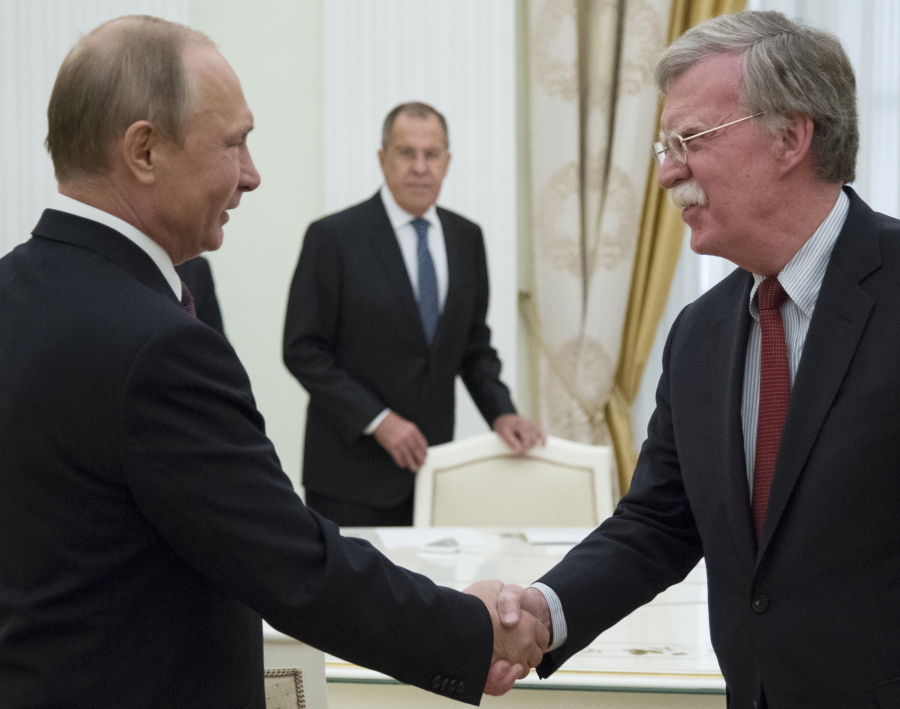
The meeting planned with Vladimir Putin is intended to be the next PR success story for President Trump. But what’s in it for Americans? And what concessions will they be making to the Russians?
It has been almost exactly one year since Donald Trump and Vladimir Putin met on the side in Hamburg at the Group of 20 summit of leading rich and developing nations. It was a noteworthy meeting. After all, it lined up well with the controversy over Russian involvement in the U.S. elections. The U.S. president had no choice but to request the meeting.
Russia’s President Putin denied everything. A critical observer commented at the time, “For Trump, it should be a highly salutary lesson about the character of Russia’s leadership to watch Putin lie to him. And it should be a fire-bell-in-the-night warning about the value Moscow places on honesty” and therefore, you must “negotiate with today’s Russia at your peril.”
That commentator was John Bolton. Since then, he has become Trump’s security adviser and in this capacity he has negotiated the summit between Trump and Putin in Moscow – at his own peril, so to speak.
Nice Compliments
He was exceptionally well received in the Kremlin. He sat right across from President Putin, Defense Minister Sergei Shoigu and Foreign Minister Sergei Lavrov. Bolton, the hardliner, complimented Putin. He was happy to learn that the soccer World Cup had been organized so successfully, he said. It was as if the past had been erased. Only the reporters reminded the guest during a press conference about the statements he had made a year ago. They did not get an answer.
Times change. None other than the hawkish Bolton is organizing the summit meeting that Trump’s opponents in Washington view with concern because they categorically accuse him of being weak on Moscow. What, they ask, will Trump concede to Putin and in exchange for what?
It is indeed difficult to predict what Washington stands to gain from such a meeting. Of topics, there are plenty. The handling of Iran or North Korea, Russia’s actions in Ukraine and Syria, arms control and a new arms race. Regarding room to maneuver, there is little. Trump can hardly have an influence on certain questions (e.g., the sanctions imposed by Congress); for other questions, positions are too far apart. This is true with respect to interactions with Iran. For the Kremlin, Iran is an ally in the war in Syria, whereas the Trump administration views Iran as a rogue state with whom fundamentally no agreement is possible.
Patient Preparation Needed
This is not an argument against a meeting of the presidents. It makes sense. But it is an argument against the manner in which the meeting is coming about. A summit requires patient, diplomatic groundwork − something that Trump does not value, since he doesn’t even have the attention span for it. He wants a quick PR success, the grand breakthrough that he can attribute to his brilliant intuition. For that, he is willing to make concessions. He’ll leave the details to his aides either way. If necessary, they’ll have to walk back, step by step, the promises their boss has made.
Putin, on the other hand, can only profit from a meeting with Trump. At the very least, it will show that Moscow is on par with Washington. The meeting is being held in Helsinki, after all, “on the soil of the Russian Empire,” the Kremlin reporter for Russia’s largest tabloid has already tweeted. Finland was ruled by the czars until the Bolshevik Revolution.

Leave a Reply
You must be logged in to post a comment.